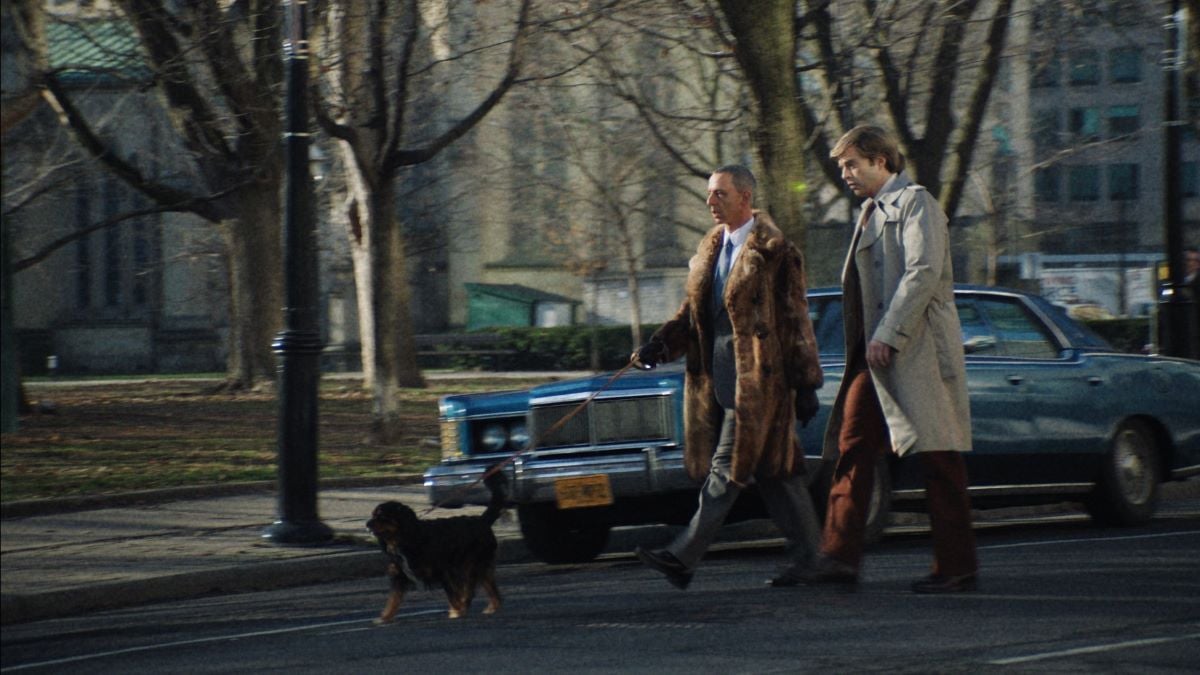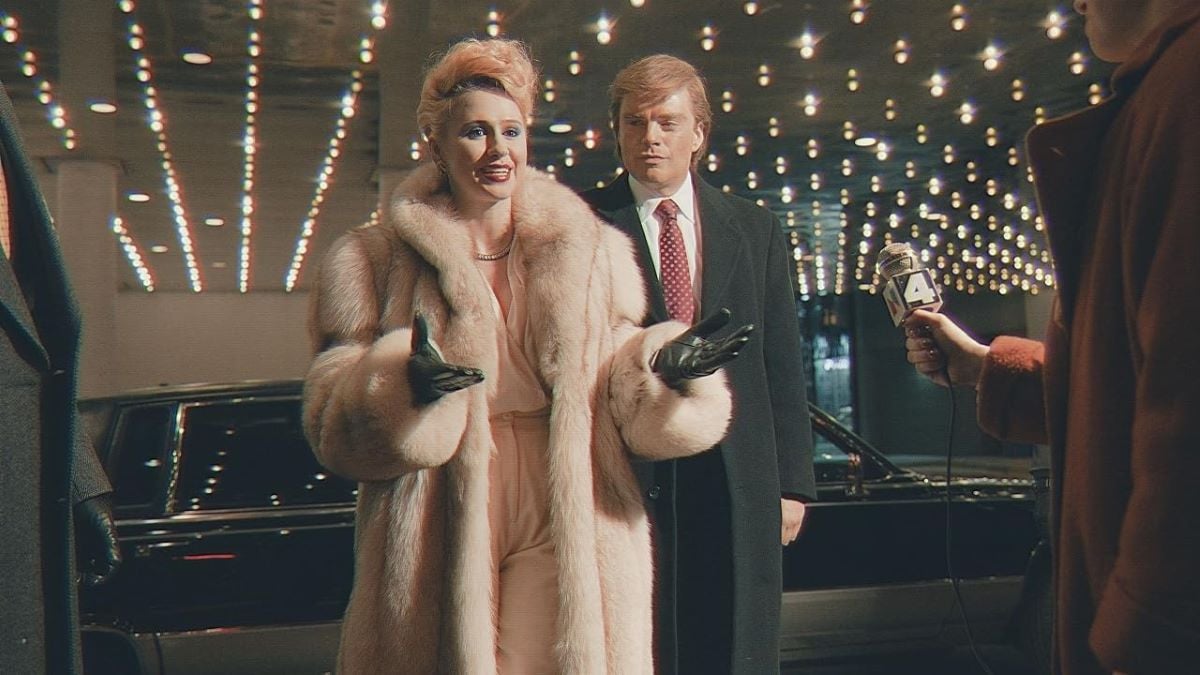If my screening is any indication, not many people want to spend two hours with Donald Trump. Heck, 30 seconds of seeing the man on the news is enough to drain the emotional energy out of anyone.
CLICK HERE TO SUBSCRIBE TO “THEY SAID WHAT!?” OUR NEWSLETTER ON THE DUMBEST HEADLINES IN POLITICS THIS WEEK
On a weekday matinee, only three people were in the theater, spread out as far as you possibly could. The reservations about seeing this film aren’t hard to guess. The Apprentice is irreversibly tied to the 2024 election and Trump as a presidential candidate political candidate. However, this doesn’t detract from Abbasi’s efforts to tell a story about a man who sells his soul to the devil.
Is now really the time to release a film about a man who gets more than his fair share of the airwaves? The answer is yes. While this film could have gone the glossy route with biopics like The Social Network, it has an indie film feel and Abbasi has a vision that he expertly executes in this year’s dark horse.
The Apprentice tracks Donald Trump’s beginnings as a hungry real estate developer working for his father’s company. In the thick of being sued by the government for racial discrimination under the Fair Housing Act, Trump enlists the help of vicious lawyer, Roy Cohn, played with admirable commitment by Succession star Jeremy Strong. Cohn teaches Trump the Rules of Winning and takes him under his wing as his apprentice. Said rules color the entire film, giving context to how Trump would battle his way to being a real estate mogul and even his attitude toward his political endeavors. These rules are as follows: “Attack. Deny everything. Never admit defeat.”

Cohn uses these rules to win the Fair Housing case as well as winning Trump a tax break on his first hotel. Echoes of Trump’s critics are present throughout the film as characters decry billionaires getting more tax benefits and Cohn’s outrageous claims that America is his biggest client. However, the true strength of The Apprentice is not just its political leanings, but how it succeeds as a work of art.
Trump is more or less innocent at the beginning of the film – at least compared to what he becomes. It posits that without learning from Cohn, perhaps America would not have this monstrous billionaire. Abbasi takes this concept and weaves a compelling character arc that shows Trump’s descent into the pits of hell to achieve success. He also employs immersive filmmaking techniques, like sequences filmed to replicate the styles of the time. For example, when the characters are in the late ’70s, the film quality takes on a grainy grindhouse quality. As the film moves through time, the quality becomes clearer and more streamlined.
Abbasi takes the same philosophy with character design. Stan portrays Trump with surprising subtlety, particularly regarding his mannerisms and dialect. His vocal patterns don’t enter parody, but Stan captures his repetitive speaking manner, which grows more pronounced throughout the movie. Stan’s delivers an acting masterclass but, somehow, is still not the best part of the film.
Despite portraying a despicable character, Strong engenders real sympathy for Cohn, especially after he realizes the monster he has created. Later in life when the lawyer is dying of AIDs, Trump humiliates him and continues to do so publically.
But above even them, the real star is Maria Bakalova as Ivana. Almost the real protagonist of the film, her portrayal of Trump’s first wife is fleshed out and heartbreaking at times. She is the only character on the same level as Trump, defying him and when she has the opportunity, twisting the knife. She gives incredibly satisfying line deliveries, calling Trump “orange” and “fat” as their marriage starts to dissolve.

This is the genius of the film. Though The Apprentice begins as a somewhat tame — if artfully styled — description of Trump’s most important years, it burns everything to the ground about halfway through. Once the film starts to go full character assassination, it doesn’t stop. There is no separating politics from this film because of how gleefully and maliciously it destroys Trump and even his fanbase. Like picking at scabs of a wound, The Apprentice picks at every one of the public figure’s insecurities in gruesome detail.
When Trump hits his stride, he becomes addicted to weight loss pills, which is essentially speed in a bottle. In the most engaging scene of the film, he goes to the doctor who urges him to lose weight connecting the drug to his erectile dysfunction. Trump instead elects for the vain approach, getting liposuction and a scalp reduction because he is balding. These scenes are filmed practically as a horror film, throwing viewers into the surgery room as doctors peel away his bloody scalp, revealing a pulsing, red brain.
At its core, this is what The Apprentice is. A horror movie. Viewers see the makings of a true villain and in Trump’s own words “a killer.” The Apprentice is not shy about its perspective and is intentional about showing that his victim is America. You can’t get more meta than filming Trump watching President Richard Nixon claim that he is not a crook. Yes, separating this film from politics is impossible. That’s the entire point and Abbasi makes sure that everyone knows it.
The Apprentice
The Apprentice forgoes subtlety in favor of skewering its subject and eventually reveals that deep down this biopic was a horror movie all along.
